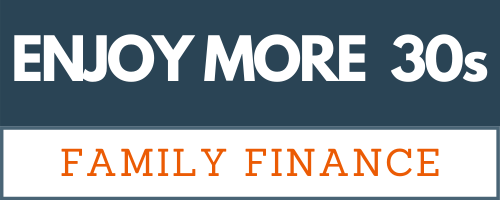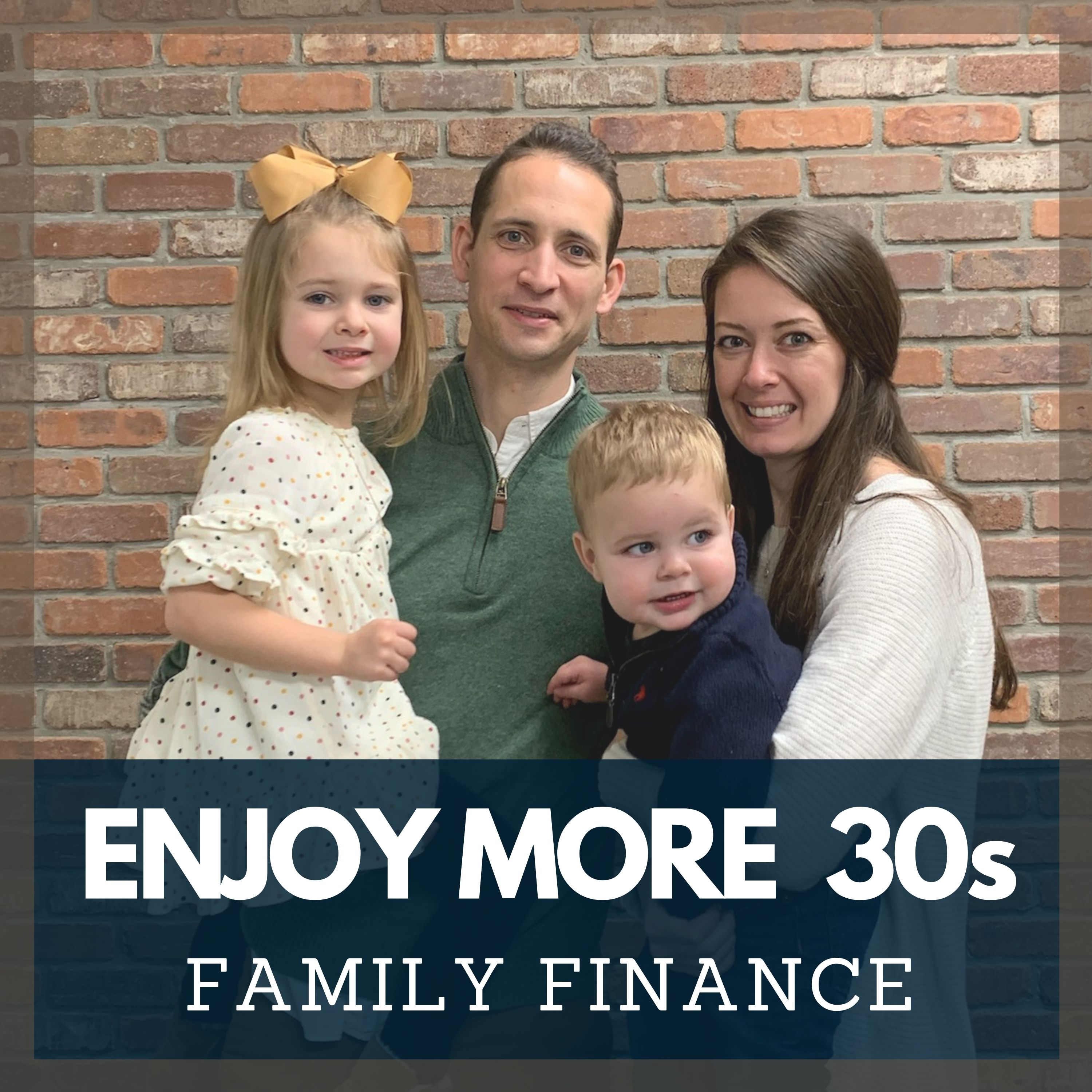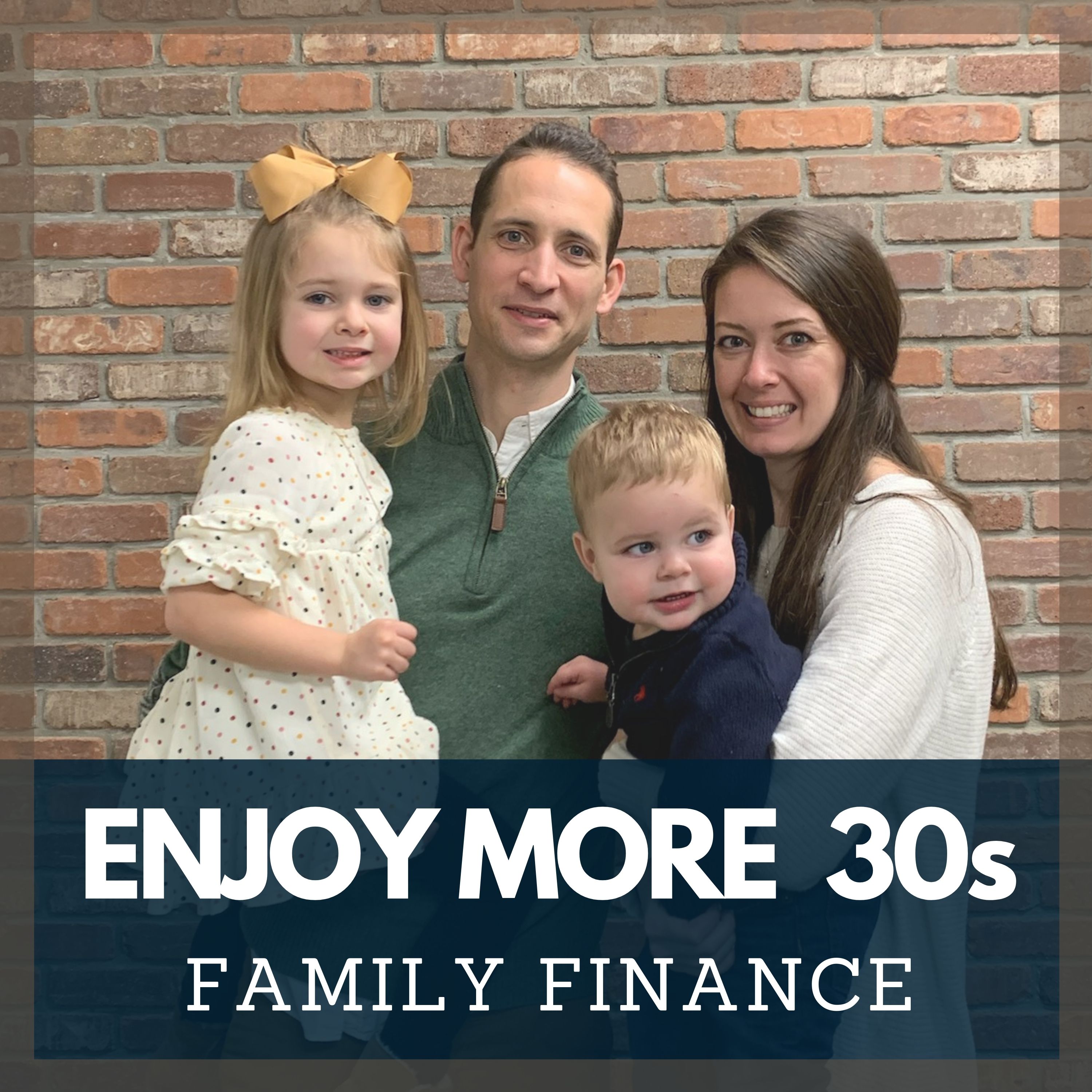Episode 5
Yes, There Can Be TOO Conservative! | Series 6.5
When to be more conservative, when to be more aggressive, and how to do so in a more balanced spread out way.
- Paying yourself first and separating out your goals is all well and good but if you're using inappropriate types of investments for certain goals, they may take much longer to achieve or even worse, perhaps you may never achieve them at all. (01:41)
- Sure, we don't want to be reckless in the ocean and sink to the bottom of the sea but at the end of the day, we also have to get to where we're going before we run out of food and supplies. (02:50)
- Using a bank or cash type savings vehicles for goals that are for 5, 10, 20, 30 years out is almost certainly not appropriate. (03:40)
Quote for the episode: "It's so important to be using the right bucket for the right goal and the right risk tolerance for the right timeline." (06:26)
Securities offered through TFS Securities, Inc., and Advisory Services through TFS Advisory Services, an SEC Registered Investment Advisor Member FINRA/SIPC. TFS Securities, Inc., is located at 437 Newman Springs Road, Lincroft, NJ 07738 (732) 758-9300.
Transcript
Welcome to the EnjoyMore30s Family Finance
Voiceover Audio:podcast. The only podcast dedicated to making life more
Voiceover Audio:enjoyable for young families by hitting on the financial topics
Voiceover Audio:that tend to weigh on us, stress us out, and distract our focus
Voiceover Audio:from simply enjoying life.
Joseph Okaly:Hello, and welcome once again to the EnjoyMore30s
Joseph Okaly:Family Finance podcast. Every week I'm here talking to you
Joseph Okaly:about money because I want you to be able to take steps
Joseph Okaly:forward, gain some kind of confidence and therefore remove
Joseph Okaly:that financial anxiety so you can really just focus on making
Joseph Okaly:your life and the life of your family more enjoyable. This
Joseph Okaly:series is all about the new year and the new you. So Setting Your
Joseph Okaly:Compass for the New Year is a great title right? As always, if
Joseph Okaly:you do like what you're hearing, please I ask always to
Joseph Okaly:subscribe, follow us on Apple podcasts, wherever you listen.
Joseph Okaly:When you click those stars, when you leave those reviews, it
Joseph Okaly:really helps us reach other people out there just like you.
Joseph Okaly:So far this season, we've covered setting your compass
Joseph Okaly:with your spouse, so joint goal setting, then we discussed the
Joseph Okaly:importance of actually paying yourself first, giving some of
Joseph Okaly:that money that you worked really hard for every day to
Joseph Okaly:yourself to reach those goals that you've set. And then we
Joseph Okaly:covered bucketing your goals. So setting separate accounts for
Joseph Okaly:each goal you you have because we want you to be able to easily
Joseph Okaly:track easily achieve them. And finally, last week, we cover one
Joseph Okaly:of my favorite topics money blocking, which is setting funds
Joseph Okaly:aside ahead of time to make sure you do more of those daily
Joseph Okaly:things massages, Starbucks, going out to eat, that make you
Joseph Okaly:happy. So if you've missed any of those episodes yet,
Joseph Okaly:definitely check them out soon.
Joseph Okaly:Today's episode is titled Yes, There Can Be TOO Conservative!,
Joseph Okaly:where we're going to cover how paying yourself first and
Joseph Okaly:separating out your goals is you know, all well and good but if
Joseph Okaly:you're using inappropriate types of investments for certain
Joseph Okaly:goals, they may take much longer to achieve or even worse,
Joseph Okaly:perhaps you may never achieve them at all. The goal for
Joseph Okaly:today's episode is to better understand when to be more
Joseph Okaly:conservative, and when to be more aggressive, and how to do
Joseph Okaly:so in a more balanced spread out kind of a way.
Joseph Okaly:Now the word investments isn't exactly soothing to most people.
Joseph Okaly:If you hook somebody up to an anxiety machine, and you said
Joseph Okaly:the word investments, I'm guessing that there'd be some
Joseph Okaly:kind of thing that registered on that anxiety scale. It's not
Joseph Okaly:exactly a word that's used in a lot of bedtime stories. It makes
Joseph Okaly:people a little uncomfortable, even scared to some degree. I
Joseph Okaly:mean, anything that's associated with a potential to lose money,
Joseph Okaly:and not fully understand perhaps even why it happened, it's
Joseph Okaly:unsettling. That's completely understandable. So when we built
Joseph Okaly:this ship that we've been trying to build this whole season, to
Joseph Okaly:sail out towards our goals, there can be more of a better
Joseph Okaly:safe than sorry kind of mentality that develops. Sure,
Joseph Okaly:we don't want to be reckless in the ocean and sink to the bottom
Joseph Okaly:of the sea but at the end of the day, we also have to get to
Joseph Okaly:where we're going before we run out of food and supplies. So
Joseph Okaly:there's a balance that we have to hit. And that's why the
Joseph Okaly:previous bucketing episode is so important, because you are
Joseph Okaly:arranging your accounts to where you can invest each more
Joseph Okaly:appropriately for their individual time horizons. If
Joseph Okaly:you're saving for retirement, and the car you're buying next
Joseph Okaly:year, and the second house you want five years from now and the
Joseph Okaly:daughter's wedding, and you're using one account to do all of
Joseph Okaly:that it can't possibly be appropriately invested for all
Joseph Okaly:Money that you need in the next one to three years, yes, that
Joseph Okaly:should likely be invested in a bank type of account. Almost no
Joseph Okaly:growth, but no loss of what they call principle, which is a fancy
Joseph Okaly:way of saying the money you put in yourself already. Outside of
Joseph Okaly:that, though, using a bank or cash type savings vehicles for
Joseph Okaly:goals that are for 5, 10, 20, 30 years out is almost certainly
Joseph Okaly:not appropriate. This is where we've run into people being too
Joseph Okaly:conservative. We have had multiple clients that have come
Joseph Okaly:to us when they're about to retire and they say, you know,
Joseph Okaly:"why do I have so much less saved than my co workers? We
Joseph Okaly:started at the same time, we put in the same amount and they have
Joseph Okaly:just 2, 3, 4 times more than I do". And so we look at their
Joseph Okaly:statement. And what we find is that it's all invested in what
Joseph Okaly:they call a stable value fund. That sounds great, right? It's
Joseph Okaly:stable, it's got value, that's a great fit for where I want to
Joseph Okaly:put my money. But it's really just a fancy way of saying
Joseph Okaly:sitting in cash earning almost nothing. They use the completely
Joseph Okaly:wrong vehicle for trying to accumulate assets for retirement
Joseph Okaly:over that last 30 year period. So let's say to illustrate this
Joseph Okaly:point, we look at two people that are saving $500 a month
Joseph Okaly:right now as an example. One person is invested say
Joseph Okaly:moderately, and let's say that moderate comes out to a 7%
Joseph Okaly:return and another person is invested basically in a cash
Joseph Okaly:type account, and they receive just 1% long term. After five
Joseph Okaly:years, it's a little bit of a difference $5,000. $35,000
Joseph Okaly:accumulated verse 30. After 10 years, it's now over $20,000
Joseph Okaly:difference. After 20 years, it's now over $120,000 difference. So
Joseph Okaly:you see that big jump. Finally, at 30 years, it goes to over a
Joseph Okaly:$400,000 difference. $610,000 vs $210,000. Stable value vs being
Joseph Okaly:invested appropriately, I would say, for the last 30 years for
Joseph Okaly:that long term retirement goal. So too conservative can often
Joseph Okaly:mean not hitting your goals or certainly hitting them a lot
Joseph Okaly:more slowly than you otherwise should have.
Joseph Okaly:Now there's a big difference between 7% and 1%, right? So
Joseph Okaly:let's look at this another way. Now instead of 7% vs 1%, let's
Joseph Okaly:look at 7% vs 9%. So much less of a spread. So potentially what
Joseph Okaly:a moderate account versus let's say a very aggressive account
Joseph Okaly:may have as a long term difference. Again, after five
Joseph Okaly:years, not too much of a difference $37,000 vs $35,000.
Joseph Okaly:After 10 years, up to a $10,000 difference. After 20 years up to
Joseph Okaly:a $70,000 difference. Now, again, you saw that jump not as
Joseph Okaly:much, but still a little bit of a jump. And then lastly, after
Joseph Okaly:30 years, it goes all the way up though now to a $300,000
Joseph Okaly:difference. $915,000 vs $610,000, just like before. So
Joseph Okaly:even a few percentage points, long term can add up
Joseph Okaly:significantly. And that's why it's so important to be using
Joseph Okaly:the right bucket for the right goal. And the right risk
Joseph Okaly:tolerance for the right timeline. Too conservative can
Joseph Okaly:also then mean using say moderate for a 30 year time
Joseph Okaly:horizon, assuming that they can emotionally handle the
Joseph Okaly:aggressive portfolio that would have been more appropriate, or
Joseph Okaly:at least working with someone so they could get educated to be
Joseph Okaly:comfortable to that point.
Joseph Okaly:The other point to take away here is why it's important to
Joseph Okaly:use that bank account for your short term goals. You can see
Joseph Okaly:after five years, there's not too much of a difference for any
Joseph Okaly:of these scenarios, or either of those scenarios, I should say
Joseph Okaly:that we just went through. So again, if it's just a two year
Joseph Okaly:or three year kind of a thing, it's probably better to have
Joseph Okaly:that money in cash, because there's not that much of a
Joseph Okaly:difference in the interest overall and if the market
Joseph Okaly:happens to drop, you, you don't want to lose, say 20% of what
Joseph Okaly:you might have, depending on how you're invested, and not have
Joseph Okaly:that money for the car, have that money for the wedding, or
Joseph Okaly:have that money for the house, if they're occurring in the
Joseph Okaly:short term.
Joseph Okaly:The thing overall with investments is that those that
Joseph Okaly:are spread out are a diversified, meaning again,
Joseph Okaly:that's a fancy way to say that they're more balanced, because
Joseph Okaly:they have a lot of different pieces to them. So let's say
Joseph Okaly:some smaller companies, some larger companies, maybe some US
Joseph Okaly:companies, some foreign companies and bonds, which may
Joseph Okaly:initially sound intimidating, but can actually easily be
Joseph Okaly:obtained through what they call an allocation fund that I've
Joseph Okaly:discussed before. So pretty much every major investment company
Joseph Okaly:out there that you know, that you see has these allocation
Joseph Okaly:funds now. So if you are using a diversified strategy, maybe
Joseph Okaly:through an allocation fund, or if you're working with an
Joseph Okaly:advisor, they might have their own diversified program, then
Joseph Okaly:the thing with investments is that time is the most important
Joseph Okaly:factor. So you don't really you don't need to know any of that
Joseph Okaly:other small company, large company, you don't need to know
Joseph Okaly:all those things. You just need to remember, hey, I want to be
Joseph Okaly:spread out, I don't want all my eggs in one basket with how I'm
Joseph Okaly:invested. And hey, if I'm not using an advisor, I can use an
Joseph Okaly:allocation fund to help spread that money out. Or I can find an
Joseph Okaly:advisor that actually does that and they could do it for me.
Joseph Okaly:So let's get back to the last point in there as well, which is
Joseph Okaly:time and how that's the most important factor. If we look at
Joseph Okaly:the S&P 500, which you probably heard that said before the S&P
Joseph Okaly:500 did this or did that. This is essentially just a blend of
Joseph Okaly:the 500 largest US companies. So not exactly what I would say is
Joseph Okaly:overly diversified but what you hear the grumpy guy on TV
Joseph Okaly:referring to as 'the market'. You can quickly see the
Joseph Okaly:importance of time when it comes to investments. Over the last 91
Joseph Okaly:years and the most recent data I could find ended 2018, so almost
Joseph Okaly:the last 91 years as of today, but you'll still get the same
Joseph Okaly:point, there was a 73% chance that any one year in there for
Joseph Okaly:the last 91 years ending 2018 would be positive. So if you go
Joseph Okaly:out to three years, you get to an 83 chance 83% chance, excuse
Joseph Okaly:me of being positive. If you go out to five years, it goes all
Joseph Okaly:the way up to 87%. 10 years is all the way up to 94%. And
Joseph Okaly:again, this is just for the S&P 500 which is not necessarily
Joseph Okaly:certainly in my opinion, the most diversified way you can be
Joseph Okaly:building out a portfolio.
Joseph Okaly:So there are a couple main takeaways and we covered a lot
Joseph Okaly:today. So let's circle back to the goal of this episode. The
Joseph Okaly:goal is to better understand when to be more conservative,
Joseph Okaly:when to be more aggressive, and how to do so in a more balanced
Joseph Okaly:spread out way. That's it. So if you look at your different
Joseph Okaly:goals, you can spread them out into different accounts, those
Joseph Okaly:different buckets you've hopefully set up, and see when
you're going to use it:1 year, 5 years, 25 years, and then
you're going to use it:structure how conservative or aggressive again in a
you're going to use it:diversified balanced way, either through maybe an allocation
you're going to use it:fund, or speaking directly with an advisor to help you. The
you're going to use it:investments should be in each one of those accounts.
you're going to use it:So thanks for tuning in today. As always and join us for next
you're going to use it:week's episode called Insure for Catastrophe, Not Inconvenience!
you're going to use it:for sure on this one, where we're going to cover the
you're going to use it:mentality that I would recommend when looking at which pieces of
you're going to use it:this trip we're designing are the most important to insure.
you're going to use it:Overall if you're able to implement what we cover today,
you're going to use it:then that is fantastic. As always, you have less to worry
you're going to use it:about them before get focus more on enjoying life. If you are
you're going to use it:wanting help with these things or you have questions, you need
you're going to use it:things to be clarified, just check out the ASK JOE section on
you're going to use it:the show's website, EnjoyMore30s.com. That's
you're going to use it:EnjoyMore30s.com. Until next week. Thanks for joining me
you're going to use it:today and I look forward to connecting with you again soon.
Voiceover Audio:The conversations on this show are
Voiceover Audio:Joe's opinions and provided for general information purposes
Voiceover Audio:only. They do not constitute accounting, legal, tax, or other
Voiceover Audio:professional advice for your specific situation. You should
Voiceover Audio:always seek appropriate advice from a financial advisor,
Voiceover Audio:accountant, lawyer, or other professional before acting upon
Voiceover Audio:any content or information found here first. Joe is affiliated
Voiceover Audio:with New Horizons Wealth Management LLC, a branch office
Voiceover Audio:of TFS Securities, Inc., and TFS Advisory Services an SEC
Voiceover Audio:Registered Investment Advisor Member FINRA/SIPC.


